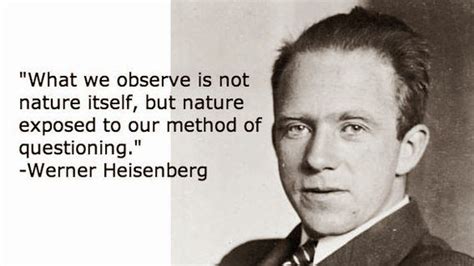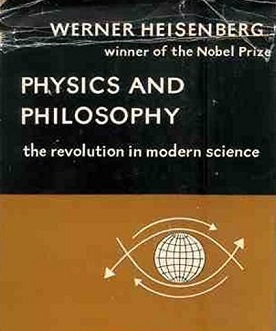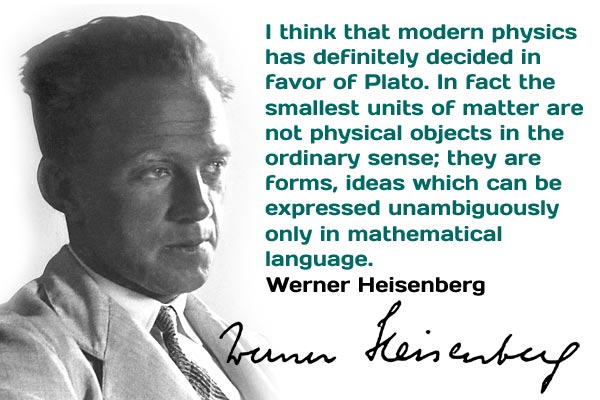|
home | what's new | other sites | contact | about |
|||
|
Word Gems exploring self-realization, sacred personhood, and full humanity
Quantum Mechanics
return to "Quantum Mechanics" main-page
Werner Heisenberg (1901-1976)
From chapter 8 of Dr. Heisenberg's 1958 book, Physics And Philosophy
From what has been said one would be inclined to demand that the scientist should never rely on special doctrines, never confine his method of thinking to a special philosophy. He should always be prepared to have the foundations of his knowledge changed by new experience. But this demand would again be an oversimplification of our situation in life for two reasons. The first is that the structure of our thinking is determined in our youth by ideas which we meet at that time or by getting into contact with strong personalities from whom we learn. This structure will form an integrating part of all our later work and it may well make it difficult for us to adapt ourselves to entirely different ideas later on. The second reason is that we belong to a community or a society. This community is kept together by common ideas, by a common scale of ethical values, or by a common language in which one speaks about the general problems of life The common ideas may be supported by the authority of church, a party, or the state and, even if this is not the case, it may be difficult to go away from the common ideas without getting into conflict with the community.
the strait gate Editor's note: If you faithfully follow the truth wherever it leads, through that "strait gate" of nonconformity -- "strait" means "narrow" -- I will guarantee you this, you will lose (for a time), almost every friend you ever had. Most everyone will be offended by your "uppity" opinions, and "who do you think you are to disagree with hallowed tradition?" "To go against the dominant thinking of your friends, of most of the people you see every day, is perhaps the most difficult act of heroism you can have." Theodore H. White, The Making of the President 1960
Yet the results of scientific thinking may contradict some of the common ideas. Certainly it would be unwise to demand that the scientist should generally not be a loyal member of his community, that he should be deprived of the happiness that may come from belonging to community, and it would be equally unwise to desire that the common ideas of society which, from the scientific point of view, are always simplifications should change instantaneously with the progress of scientific knowledge, that they should be variable as scientific theories must necessarily be. Therefore, at this point we come back even in our time to the old problem of the 'twofold truth' that has filled the history of Christian religion throughout the later Middle Ages. There is the very disputable doctrine that positive religion—whatever form it may take--is an indispensable need for the mass of the people, while the man of science seeks the real truth back of religion and seeks it only there. 'Science is esoteric,' so it is said, 'it is only for the few.' Editor’s note: It is unclear what Heisenberg means by “positive religion,” although, given the context of the shifting sands of community opinion, I believe he’s referring to “positive” in the sense of “positing,” which is the meaning embedded within the term “positive law”; that is, law by whim of ruler, law by someone’s “say so.” This is exactly what the scientist needs to avoid but, instead, to embrace “intellectual honesty” (see the next paragraph). If in our time political doctrines and social activities take the part of positive religion in some countries, the problem is still essentially the same. The scientist's first claim will always be intellectual honesty, while the community will frequently ask the scientist that—in view of the invariability of science—he at least wait a few decades before expressing in public his dissenting opinions. There is probably no simple solution to this problem, if tolerance alone is not sufficient; but some consolation may come from the fact that it is certainly an old problem longing to human life. Editor’s note: Heisenberg’s 1958 discussion here is all the more suggestive of the problematic as he, doubtless, mused upon his decision to lead the Nazi “deep science” A-bomb efforts, which, had it been successful, would have meant the destruction of Western civilization and the advent of a new Dark Age of absolutism.
|
|||
|
|


